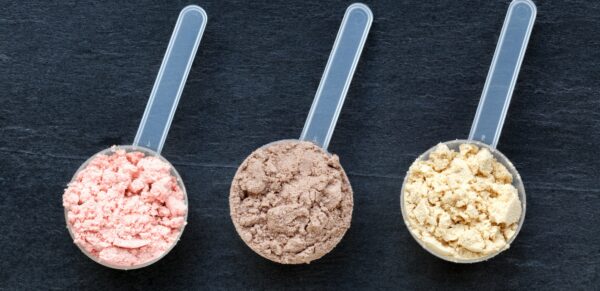
When it comes to the customisation of personal nutrition, elimination diets are the latest trend. These diets, which eliminate certain nutrients, foods or food groups, are down to consumers wanting to improve their digestive health, but they can also be motivated by ethical or religious beliefs or a desire to improve athletic performance. How can brands meet these new expectations in terms of product ranges and ingredients?
Digestive health diets
Gluten-free
Allergy, intolerance, celiac disease or dietary trend, gluten is now avoided by many consumers. Nearly 9% of French people associate “gluten-free” with a healthy diet (according to a 2017 study by Toluna QuickSurveys for LSA), while only 1% of people actually suffer from celiac disease in France (an autoimmune disease linked to eating gluten) (source: AFDIAG).
Gluten is a plant protein found in certain grains, in particular wheat, which is found in wheat meal, pasta, wheat flour (bread, biscuits, pastries, cakes, etc.), ready meals, and more. The food industry uses gluten as a texturising agent to make products more elastic or creamier. Gluten can thus be found in products that we would not suspect, such as icing sugar, frozen products or chocolate, and in all products bearing the statement “traces of gluten”.
Developing products with alternatives that naturally contain no gluten (rice, maize, buckwheat, amaranth, millet, soya, sorghum, quinoa) is now a real avenue for innovation. Hypermarkets and supermarkets are seeing growth in the “gluten-free” market, particularly with sweet and savoury packaged products (pasta, biscuits, breakfast cereals, etc.) as well as frozen foods and deli products (ham, savoury nibbles, etc.).
Dairy-free
Some people experience digestive discomfort due to sensitivity or intolerance to lactose, a natural sugar found in milk. They suffer from a lactase deficiency, the enzyme that makes it possible to digest lactose. When this enzyme is not properly absorbed it can cause intestinal cramps and gas, which can have a debilitating effect on day-to-day life. Dairy products should therefore be avoided, with the exception of aged cheeses and yoghurt: in these products the lactose has already been broken down during fermentation by lactic acid bacteria.
Many products have been developed to meet the needs of lactose-intolerant consumers. Milk manufacturers offer, for example, “easy to digest” milk: lactose is pre-digested thanks to the addition of lactase, which makes the drink more digestible. The range of plant-based milks has also expanded considerably (soya, almonds, oats, rice, etc.).
At JLB DÉVELOPPEMENT, we are developing different formulas for lactose-free dietary and sport nutrition products, adapted to the specific needs of our consumers.
FODMAP-free
Often recommended for irritable bowel syndrome, this diet eliminates short-chain carbohydrates (oligo, di or mono-saccharides, polyols) also known as FODMAPs. These carbohydrates can be poorly absorbed by the small intestine, which in some people causes abdominal pain, bloating, diarrhoea or constipation.
Although FODMAPs are not necessarily the cause of these digestive issues, cutting them out can help to reduce abdominal discomfort for some people. In a low-FODMAP diet, all oligosaccharides (wheat, legumes, on, legumes, onion, garlic, artichoke, etc.); disaccharides (milk); monosaccharides (apple, pear, mango, honey, etc.) and polyols (stone fruits, mushrooms, cauliflower, etc.) are cut out. However, these foods should not all be permanently removed from the diet: The FODMAP diet recommends gradually re-introducing them in order to identify which foods really pose a problem.
At JLB DEVELOPPEMENT, we have sourced hundreds of raw materials for our customers’ dietary products. We can therefore advise you and offer you the best carbohydrate ingredients for your formulations, depending on your market and your targets.
Ethical diets
Vegetarianism and flexitarianism
Vegetarians do not consume any meat. Whether for animal welfare, environmental conservation or nutritional reasons, this diet is becoming more widespread.
However, many people do not want to stop eating meat altogether. This desire to consume less meat, but of better quality, characterises flexitarians. Nearly a third of French people identified as flexitarians in 2017 (according to Kantar Worldpanel in 2017). The idea with this diet is not to eliminate entirely, but rather to substitute. Flexitarians use the principle of complementarity to ensure sufficient protein intake. Iron is provided by a larger portion of vegetables, legumes, nuts, seeds and pulses (iron supplements can be taken if necessary). What about vitamin B12? Our liver stores it in very large quantities while its daily use remains very low. Consumption of animal products such as eggs and milk, etc. should therefore be enough to cover dietary requirements.
Veganism
The vegan diet excludes all meat and animal products: milk, butter, cream, cheese, eggs, honey and other ingredients such as rennet, gelatine, milk protein and dye insects. The basis of this diet is therefore the same as vegetarianism but with further restrictions.
In this very restrictive type of diet, the absence of animal protein, iron and vitamin B12 should be compensated for in the same way as in a vegetarian diet. Calcium is also added to the list of nutrients that needs to be closely monitored. By eliminating dairy products, it is difficult to ensure sufficient calcium intake.
Consumers and manufacturers often opt for legumes as an alternative because of their rich plant protein content. We make many vegan sports nutrition mixtures based on pea or hemp proteins, in order to best meet the needs of athletes. To make these mixtures rich in calcium, we add lithotamne powder, a micro-algae.
Sports performance diets
Health nutrition food
Consumers have never paid so much attention to the quality of their food. Today’s customers are looking for products that are naturally healthy and free from additives such as preservatives, artificial colours and synthetic flavours.
Foods that are too fatty, too salty or too sweet are out: a specialist in the manufacture of dietary products, JLB DÉVELOPPEMENT supports dietary brands in the development of products with an optimised nutritional profile.
The ketogenic diet
In a quest for performance and a lean physique, some athletes adopt a ketogenic diet. With this type of diet, carbohydrates are cut to make way for fats, which cover 70-80% of your daily energy intake. Deprived of its preferred energy substrate, the body turns fats into ketones to ensure a constant and regular energy intake. This low-carb diet draws energy from excess fat.
It is essential to fine-tune the formula of products developed on the ketogenic concept. The choice of fats and carbohydrates will determine the success of a product Our specialist formula developers can advise you!
……………………………………………………………………..
Consumer expectations and behaviours are changing. Dietary, agri-food and nutraceutical brands must pay attention to market demands. JLB DEVELOPPEMENT, an expert in designing and manufacturing dietary products, is always on hand to help you formulate and define dietary concepts.


